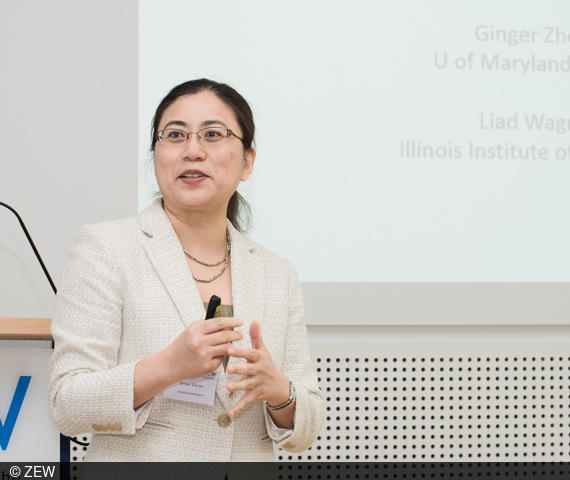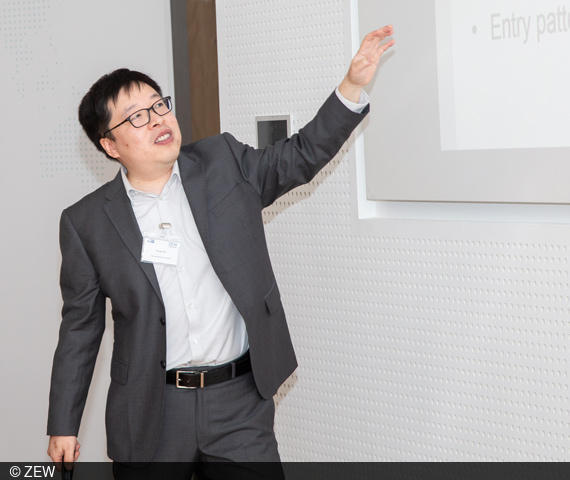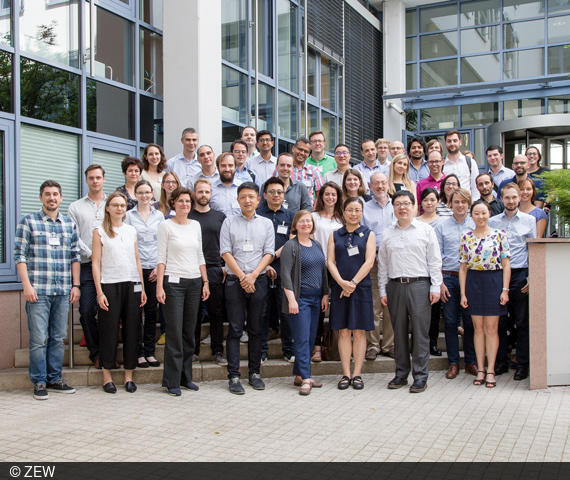16th Conference on the Digital Economy at ZEW
ConferencesOn 21 and 22 June 2018, ZEW hosted the 16th conference on the “Economics of Information and Communication Technologies”, a renowned international event organised by the ZEW Research Department “Digital Economy”. The conference has long been considered one of the most important scientific conferences in the field of digital economy. This year, around 75 international researchers discussed recent research findings on the economics of information and communication technologies.
Both keynote speeches held at this year’s conference centred on the topics of digital data and online platforms. Professor Ginger Zhe Jin from the University of Maryland, for instance, shed light on the implications of big data for consumer protection and competition regulation. In her speech, she emphasised that the use of digital data can in fact exacerbate market imperfections. In this regard, holding large volumes of data can increase market power of individual platforms, thereby reinforcing monopolistic tendencies. From the consumer’s standpoint, the sheer mass of available data makes it difficult for individuals to identify relevant information.
In general it can be said that the commercial use of data has created new tasks for consumer protection and competition regulatory bodies regarding, for example, data property rights and their use. In the coming years, economic research will be required to play an active role in shaping regulatory solutions in order to tackle these tasks. In his keynote speech, Professor Feng Zhu from Harvard Business School presented recent findings of his research on online platforms. In addition to addressing the relevance of platform economics, he also highlighted several factors that play a role in the scalability and sustainability of online platforms as business models, including, for instance, self-amplifying effects like network and learning effects as well as the option of so-called “multihoming” that allows users to simultaneously connect to and switch between multiple providers. Other factors that influence online platforms are users’ networking opportunities, the risk of off-platform transactions and whether or not the platforms offer complementary services.
Broad range of topics in the field of digital economy: From social media to machine learning
In several parallel sessions, the conference provided many different perspectives on the digital economy. The contributions presented at the conference covered a broad spectrum of topics, ranging from social media, the sharing economy and the mediation of jobs via online portals, to online advertising and the application of machine learning. This year, the event also focused on user behaviour on the internet, the impact of digitalisation on political mobilisation as well as the change of work contents. Within the framework of the conference, Professor Florian Stahl und Professor Martin Peitz from the University of Mannheim organised two sessions on methods of measuring users’ attitudes using data from social media, distortions in online reviews and the competitive behaviour of platform providers. The conference featured a total of 40 presentations and subsequent discussions, and received funding from the German Research Foundation (DFG).


